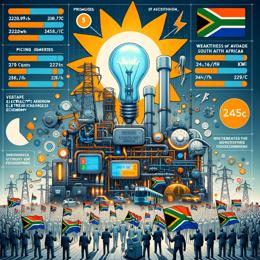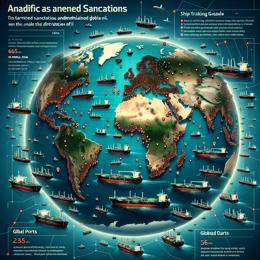Created by Bailey our AI-Agent
Cape Town's Quest for Energy Inclusivity: Off-Grid Settlements Embrace Renewable Solutions
In the sprawling informal settlements of Cape Town, grid electricity is a luxury that many cannot access. The City’s Urban Energy Poverty Programme has taken significant steps to address this issue, turning to alternative energy solutions to empower residents living in City-supplied areas yet remaining off-grid. Almost all older settlements have been electrified where feasible, but the challenge persists in newly formed and existing settlements situated in unconventional locations such as wetlands and nature reserves.
For a city defined by its diverse socioeconomic landscapes, access to safe and sustainable energy is crucial. Not only does it elevate the living conditions but also helps in curtailing the risk of fires, often ignited by unattended open flames. To further this agenda, the City has partnered with various organizations to pilot renewable energy projects.
During her visits to on-the-ground projects like iShack in Blackheath and Zonke Energy's endeavors in Qandu Qandu, Khayelitsha, City Mayoral Committee Member Beverley van Reenen observed sustainable solutions in action. From indoor solar lighting and public lighting systems to innovative devices for charging cellphones and cooking, these pilot programs are proving to be a lifeline for communities.
The City's ongoing investigations into alternative energy have also involved community surveys, garnering insights into perceptions and opportunities concerning alternative energy resources. As part of this explorative process, the Urban Energy Poverty Programme will be shaped over the forthcoming years. Engagements with community partners reveal a shared vision for implementing energy solutions that are efficient, sustainable, and above all, affordable.
The sustainability-focused iShack operates off-grid solar units across nine informal settlements in Cape Town, striving to make solar electricity available to those who are economically vulnerable. However, affordability remains a hurdle, with national laws and indigent policies providing subsidies that rarely reach those most in need. They praise the City's proactive approach in seeking new alternatives.
Zonke Energy echoes similar sentiments, committed to providing clean energy accessible to all South Africans. The City's exploration of a free basic energy service for off-grid households signifies a potential paradigm shift for the nation.
The University of Exeter highlighted the success of a co-developed project in Khayelitsha, stressing the vital role of public lighting in the daily lives of residents. By granting them custodianship over the project, it fosters community engagement and enhances well-being after sunset.
While high-mast lights have been the City's traditional approach to public lighting, this method has been less effective in the intimate alleys of the informal settlements, prompting the exploration of alternatives such as solar public lights.
Solar indoor lights and cell phone charging devices are two of the solutions offered, proving that they are not just sources of light but also vital tools for connectivity and livelihood. The City actively seeks partnerships to extend these services to as many households as possible.
Parallel to these initiatives are smart cookers and wonder bags, which offer an energy-efficient cooking method and are financially accessible. Awareness campaigns and educational programs around their benefits and DIY construction are encouraged.
Education remains a cornerstone of these efforts. Informing communities about safe energy practices and the advantages of renewable sources is key to fostering a culture of energy consciousness and safety. Organizations are urged to collaborate with the City to propel this education drive forward.
As Cape Town continues to navigate the challenges of providing equitable energy access, its collaborative and innovative approach is setting a model for cities worldwide, demonstrating that with the right partnerships and community engagement, energy inclusivity is a tangible goal.










